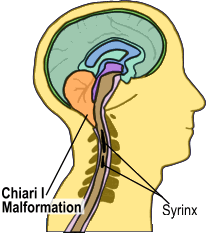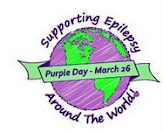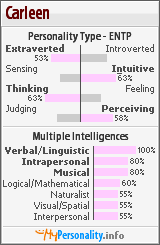- Arnold Chiari Malformation is the medical name for what I like to cal
 l a brain fart. In a nutshell, people who have ACM have brains that are too big to fit properly inside their skulls. Although I like to think this is just because we're so doggone smart, medical evidence does not support this hypothesis. Because the brain doesn't fit like it should, the tonsils (foramen magnum) hangs down, outside the cavity of the skull, and into the spinal canal.
l a brain fart. In a nutshell, people who have ACM have brains that are too big to fit properly inside their skulls. Although I like to think this is just because we're so doggone smart, medical evidence does not support this hypothesis. Because the brain doesn't fit like it should, the tonsils (foramen magnum) hangs down, outside the cavity of the skull, and into the spinal canal. - ACM is a real pain in the butt. . .er, head! The spinal canal is made just big enough to hold the spinal cord so when a protruding piece of brain scoots down in there, life can get really complicated. Things like killer headaches, dizziness, nausea, vertigo, tingling sensations, difficulty swallowing, double vision, difficulty hearing, balance issues, and insomnia are just a few of the symptoms that ACM triggers and that ACM patients deal with on a daily basis.
- Size does not matter with ACM. Some people have very small protrusions and suffer considerable pain, while others may have a larger protrusion and never have a symptom. In my case, a chunk measuring 8 mm -- not really big, but definitely not small -- sits in my spinal canal. If it hadn't been for the fact that I suddenly began having headaches so painful that it hurt to breathe, I would have never known that I had a problem.
- What comes out, can't go back in. If the brain breaks free of the dura mater, the protective membrane that surrounds it, it can never be put back inside. The solution to this problem is surgery. To allieviate the pressure that this piece of brain puts on the spinal cord, decompression surgery, typically composed of three parts (craniectomy, laminectomy, and duraplasty), is the most widely recognized treatment.
- If undiagnosed and treated, ACM can cause paralysis or death. Dr. G, Medical Examiner, part of the Discovery Health Network's programming, had an episode about a young man whose ACM was undiagnosed and who died because the brain protrusion pinched his spinal cord.
- No known cause or cure. Although many physicians believe that ACM is a hereditory problem, there is no definitive proof of it. Nobody in my family has the problem except me, but Julie Carter, a Chiari activist, and all three of her daughters have it. If you're a fan of Extreme Makeover: Home Edition, you might be familiar with the Carter Family; they received a home makeover from ABC a couple of years ago.
- Classified as a rare disorder by the Office of Rare Diseases (ORD) of the National Institutes of Health (NIH). What this means is that ACM affects less than 200,000 people in the U.S. population. Ok, so this just means that I'm special -- I can live with that!
- I'm a Zipperhead! What's a Zipperhead, you want to know? That's the nickn
 ame that Chiari patients call a decompressed Chiarian. After the surgery, the back of your head looks like its been closed with a zipper, and that's where the nickname comes from.
ame that Chiari patients call a decompressed Chiarian. After the surgery, the back of your head looks like its been closed with a zipper, and that's where the nickname comes from. - Getting a diagnosis is not easy. Because ACM triggers so many different and seemingly unrelated symptoms, most ACM patients don't get the proper diagnosis for many years. This was my case. The problem was clearly present in my early teens, but I was shuffled back and forth from the ENT to the family doctor to a gastroenterologist. Back in those days, the MRI was not available and since it is the now the way that most people are diagnosed, I can't blame any of the doctors who treated my symptoms without getting to their root cause. I just had to wait until technology caught up with them.
- Decompression surgery can alleviate some of the symptoms, but it doesn't solve the problem. Because of #4, surgery doesn't solve the problem; however, it did help to control the symptoms better. After I had surgery, the headaches occurred less frequently, which is good. I still have problems with double-vision, my balance is so bad that my neurologist joked how it's a good thing that I don't drink because I would never pass the standard police drunk test (heel-to-toe walking a straight line), my depth perception is so off that I can't see well enough to walk down a flight of stairs or even a curb without falling, and I have complex-partial seizures that come from the right parietal lobe of my brain. The remaining symptoms may sound bad, but I manage to live a relatively "normal" life with them.
- ACM is more common in women than in men. I like to think that this is just because we're naturally smarter, so our brains are naturally bigger! It's not likely that the medical community supports my findings, though.
- Roseanne Cash, daughter of country music legend Johnny Cash, is also a Zipperhead. She had decompression surgery in December of 2007. Maybe it was ACM that was causing her "Seven Year Ache." Ok, that was a very bad joke!
- ACM is an invisible illness. Because people can't see the piece of brain that hangs out in the spinal canal, they often misjudge a patient's reaction to the symptoms. Our society is trained to look for visible symptoms of an illness -- watery eyes and sneezing for allergies, red bumps for chicken pox, coughing and a stuffy nose for a cold, etc. -- and when none are present, judgment of the patients who suffer from invisible illnesses tends to be rather harsh. Perhaps because my invisible illness involves The Brain, that most sacred of internal organs (muscle just doesn't sound as dramatic here, sorry), I am treated far more kindly than someone who has Lupus, for example. This is just plain wrong!
If you'd like to join in on the Thursday Thirteen fun, click here.





















I'm glad I inspired this. You presented this so well. Can I call you Zipper for short now LOL...Carleen - Zipper how's that shorter LOL. Your last point drives this all home. Thank you so much for sharing this. I'm totally in awe of you :) Aloha my friend
Thanks for sharing your story, I had no idea this condition existed. I'm glad they were able to give you a dianosis. I know what you mean about advanced technology/medicine. When I had my daughter (almost 20 yrs ago)I felt in the slumps constantly, I went to the doctor and he said there was nothing wrong with me. He said I suffered from bored wife syndrome, the nerve! Today, I believe I had postpartum depression. I have been treated for depression and I'm in the process of starting taking meds again...
Wow. Glad the surgery at least helped some. Thanks for the fascinating TT.
Thom, I'll settle for Zip -- that's four letters less than Carleen, LOL!
Isolated -- bored wife syndrome? What the hell is that? Europe is so far ahead of us when it comes to recognizing, diagnosing, and treating post-partum depression. Maybe we'll catch up one of these days. Of course, we'll have to duct tape Tom Cruise's mouth shut first!
Journeywoman, thanks for stopping by!
Components of the association of Chiari patients ASENCHI call, www.asenchi.es want to send our support, strength and friendship
Extremely....one awesome post. I'm glad you shared this with us. You gave us all an education, and truly humbled us who just complain ....just 'cause. Y'know?!!!
You're an inspiration.
I had heard of this from the Extreme Makeover show you mentioned and did some reading on it at the time. But that's been a while and your posting was detailed yet understandable -- just excellent information. Thanks for sharing!
Hey Zip...here's the response from my aunt. I'm sending her the link for this post:
I had a subdural hydroma... they drilled two holes in my head... let all the obvious blood drain out.. then put a drain tube in there and 2 more cups drained out in intensive care... the drain tube was uncomfortable... and scary... but I did NOT have a tumor.. it was caused by fainting and banging my head on the toilet in my 14th day of having the flu... which caused a bleed in my brain cavity... my final symptom, aside from feeling faint every time I stood up and being dizzy as shit, was that my entire left side.. lips to toes went totally numb... eerie feeling.. interesting fact about brain surgery... they drill two holes in your head.... one of which they put the piece of skull back in place when they are done... then they put little flaps and screws in it to hold it in place when they put the piece of skull back in place .. you can feel the screw heads under the skin and they irritate the hell out of me occasionally... the second hole they only replace about half the skull and leave the other half "open".. it is like a soft spot... why?? you ask??? so that IF they need to get back in there in a hurry (which I guess is a pretty frequent event) they already have a hole !! So for the rest of my life, I will have this dent in my skull... you can see the strips and screws in my xrays now... they don't know exactly where the bleed was... only that it happened... and therefore, I have to have CT scans at a minimum of once a year... sooner if I am symptomatic... I have a friend that lost her peripheral (sp?) vision due to her brain surgery.. but I have very little residual effect from it.. some memory loss.. my condition squished my brain down to about 2/3 its normal size to accomodate all the blood... so my brain has had to come back and expand, which I guess it never will completely expand back to normal.. but so far.. so good... all sorts of reasons for brain surgery... I was VERY lucky... according to my docs with the numbness I had, I should have been in a coma and dead within hours... shows you what a tough old broad I am.. LOL... you can send her this if you want to... I would be interested to see what her experiences were... so please send it to me...
Love you lots, Auntie
So there ya go. :)
You are a very brave and inspiring woman, Carleen! Thank you for sharing this informative post to raise more awareness about ACM. I am so glad to read that your surgery went on well and could relief some of your pain. Take good care :)
Thom, my brain surgery was nowhere near as scary as your aunt's! My head was opened from the back (neck), and a quarter-sized piece of the skull was removed. After that, a piece of bovine pericardium (the membrane that covers a cow's heart) was used as a patch for the piece of brain that hangs into the spinal canal. Basically, it's job is to lift the piece of brain up and away from the spinal cord. Finally, the first two vertebrae in my neck were completely removed. The first and third procedures are done to make room for the protruding piece of brain. So I can say with all seriousness that I now have a hole in my head!
Because I am absolutely terrified of hospitals and never stay very long, I spent one day in the ICU and 1 day in a regular room before I was able to convince my neurosurgeon to let me go home. I do have to admit, however, that this surgery was the first one I had where I actually used morphine once in the hospital. There's nothing like a huge gash on the neck to make you understand how important it is, LOL!
Wow...so now you are known as Zip Holiness? LOL. Thanks for sharing even more. I sent my aunt the link to this post. I hope she comes over. :)
From my Aunt:
my god... that makes me want to cry for her... what a horrible illness... I feel blessed that mine was so simple comparativly speaking...
Four years later your story is still being read. Thank you for sharing.
Hugs,
Your friendly neighborhood Chiarian.
This is one of the best explanations I have read, thanks!